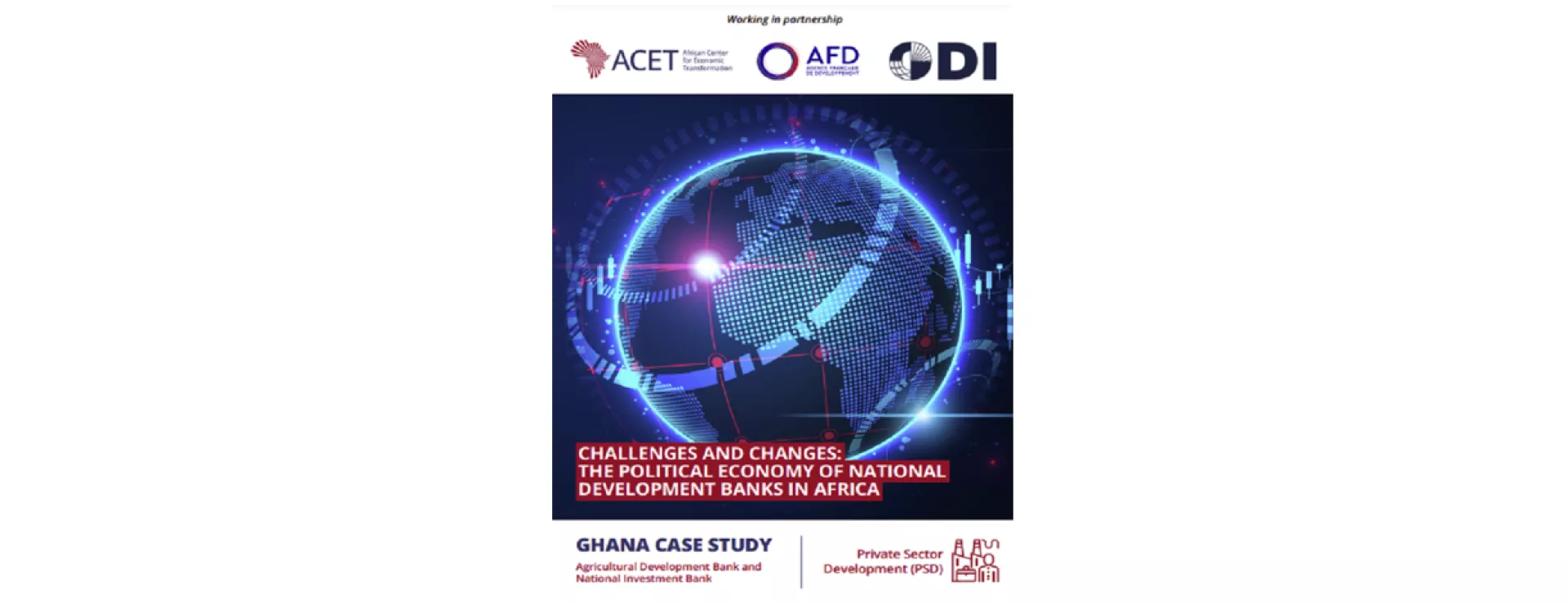Challenges and Changes: The Political Economy of National Development Banks


National Development Banks (NDBs) perform an important role as development actors. Compared to regional or international financial institutions, NDBs are deeply rooted in the national context, embedded in national policy frameworks, and connected to both public and private sector actors. They can therefore play an instrumental role in the domestic economy by supporting the growth of domestic firms, playing a counter-cyclical role in addressing economic shocks and crises and contributing to long-term economic transformation to sustain low-carbon and climate-resilient economies. However, in African countries where institutional weakness and governance challenges are endemic, the perception of these institutions as weak in governance and poor in performance means they may be overlooked by international partners, thereby inhibiting their potential developmental impact.
Through research, the African Centre for Economic Transformation (ACET) and the Overseas Development Institute (ODI) aim to explore the development activities and impacts of NDBs, and the financial, governance, business models and reform challenges in Ghana, Cote d’Ivoire, Rwanda, and Tunisia.
Based on this broad objective, the research seeks to address the following key questions:
i. Political influence: What is the relationship between the bank and the national government, and how have governance structures integrated, or insulated, the bank from political influence, both positively and negatively?
ii. Operations and performance: How have the bank’s mandate and operations evolved over the past 5-10 years? What has been the role of this political relationship or influence in driving the bank’s record of performance?
iii. Enabling environment: How has the wider economic and institutional context supported or frustrated the bank’s ability to fulfil its mandate? How has the bank fared in shaping and achieving its stated goals?